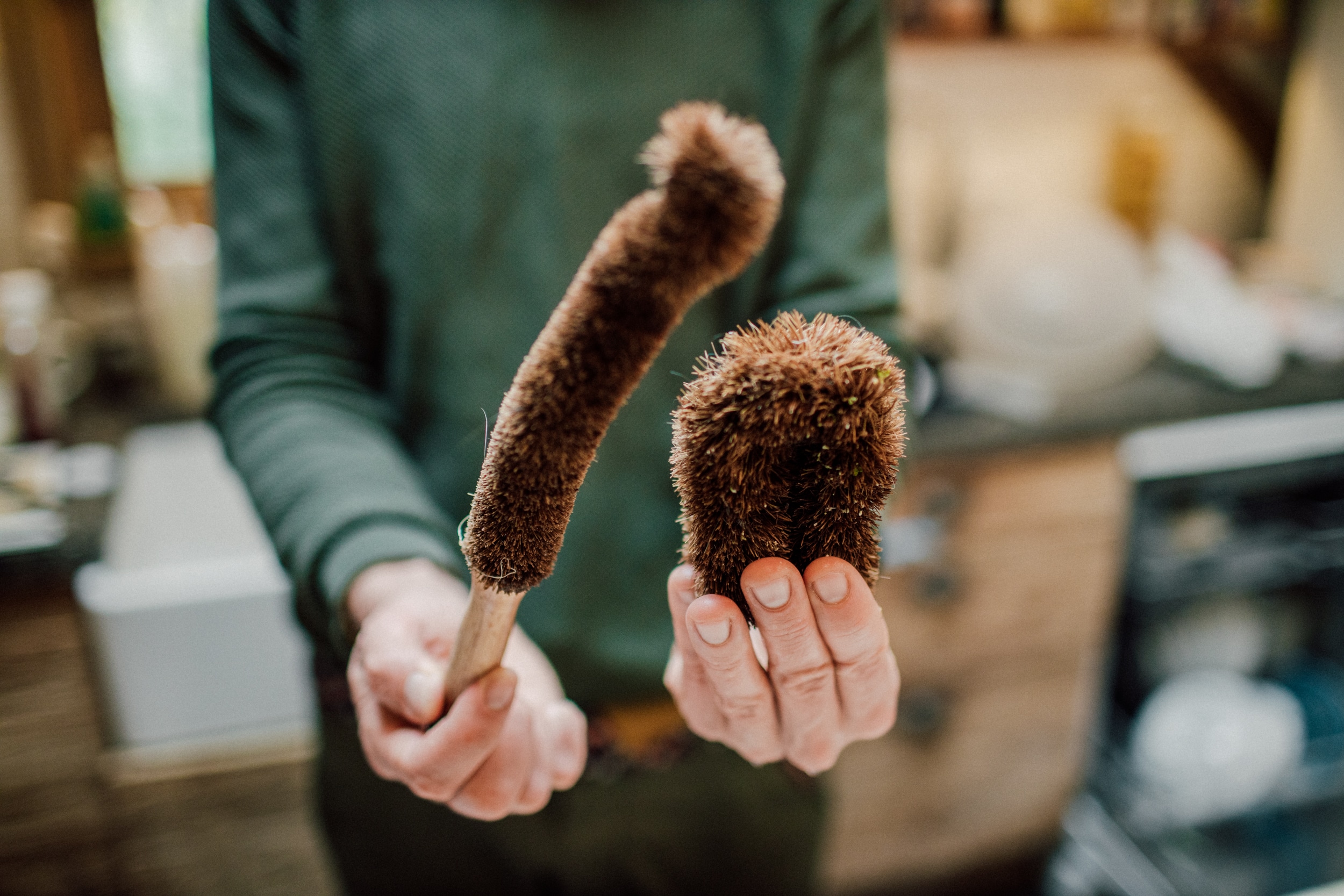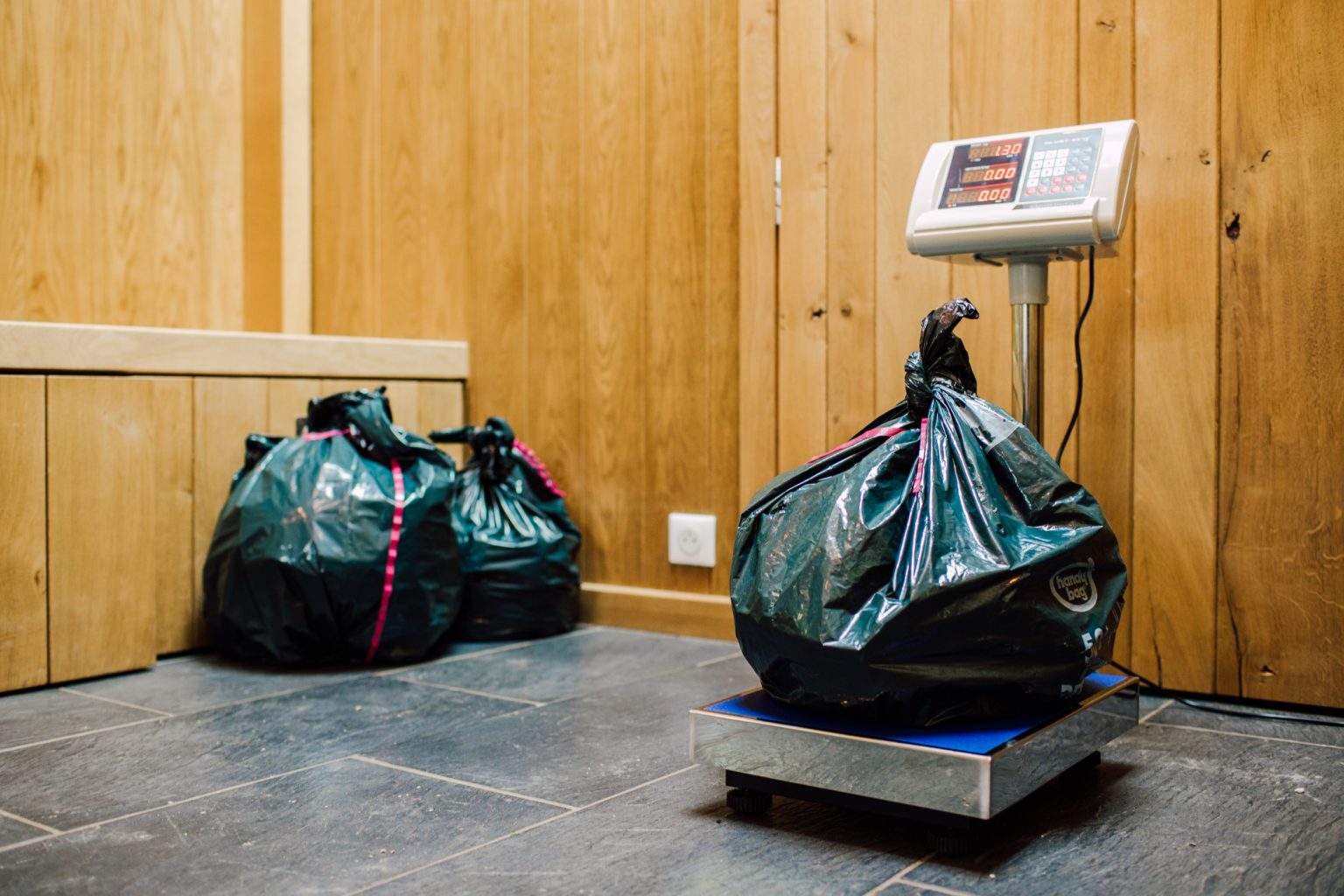
What is zero waste?
Zero waste homes, zero waste offices, zero waste hotels, zero waste communities: the term ‘zero waste’ is being used all the time, but what does it actually mean, and where do we begin?
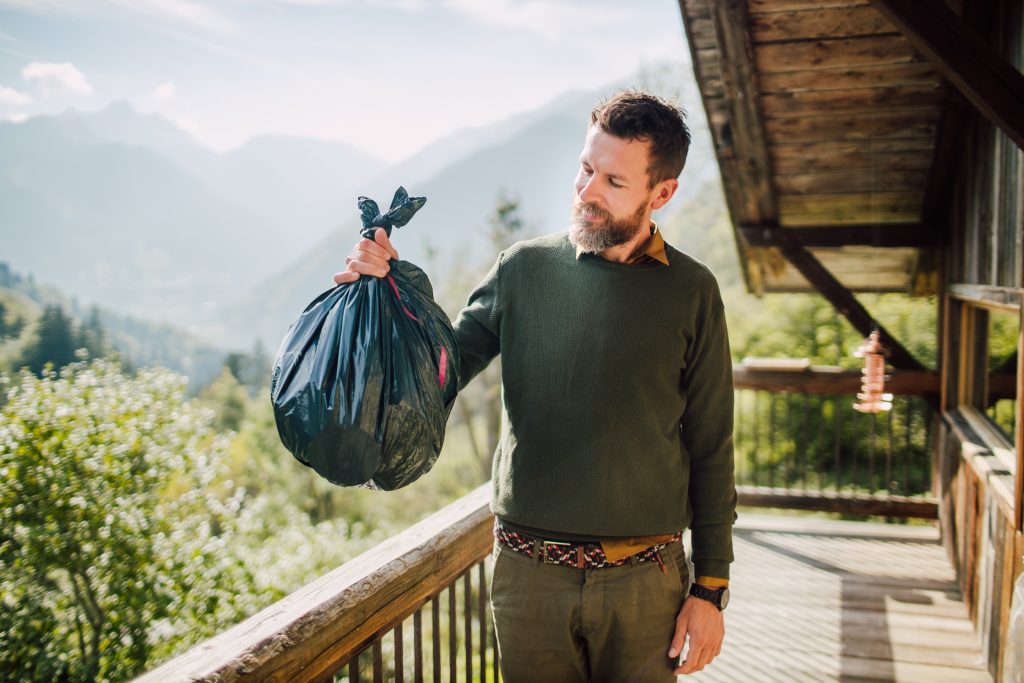
Let’s start with the problem. It is estimated that worldwide, a staggering 2.2 billion tonnes of waste is produced each year. A lot of this waste comes from the packaging of food and beverages, a great deal of which will end up in a landfill, since certain types of packaging are non-degradable or can take hundreds of years to break down.
Adopting a zero waste approach helps us ensure that as many products and materials as possible are reused rather than ending up in landfill or incinerators. This means going further than recycling, which is energy intensive and should be the last resort, to adopt better methods whereby the products we choose and their packaging are lessened or reused. The overall goal is to keep materials in circulation for as long as possible. Instead of discarding resources, we create a system whereby all of them are able to be reused again, and again in multiple life cycles. This thought process is a massive business and lifestyle shift away from traditional modes of consumption, whereby we take (a raw material) make (a product) and dispose (of it in the bin).
If, at this point, you are feeling a little overwhelmed, it’s helpful to think of zero waste as a ‘journey’, rather than a ‘destination’. Accept the fact that there is no quick win, no short cut to reach the end goal. Start the journey by creating time to assess, sort, and plan – finding a system that works for you. Once you do you’ll find yourself naturally looking for solutions, and your attitude will become contagious. Partners, kids and team members will want to follow suit when they see you finding solutions and making changes.
We hope that by sharing our journey with others we will help spread awareness of how we can all eliminate waste and encourage more people to get on board. So here’s some of the things that we are doing, please share your own waste minimising solutions in the comments below.
This process is about as glamorous as it sounds, but it is super important! It involves standing on scales with rubbish bags sorted into household, recycling and green glass, and then recording their weights. By sorting and weighing the waste from our chalets each day, we track our waste habits, which makes us more mindful and helps us set targets for reducing waste across the business. This is a process that we highly recommend getting into to propel your waste minimising good habits.
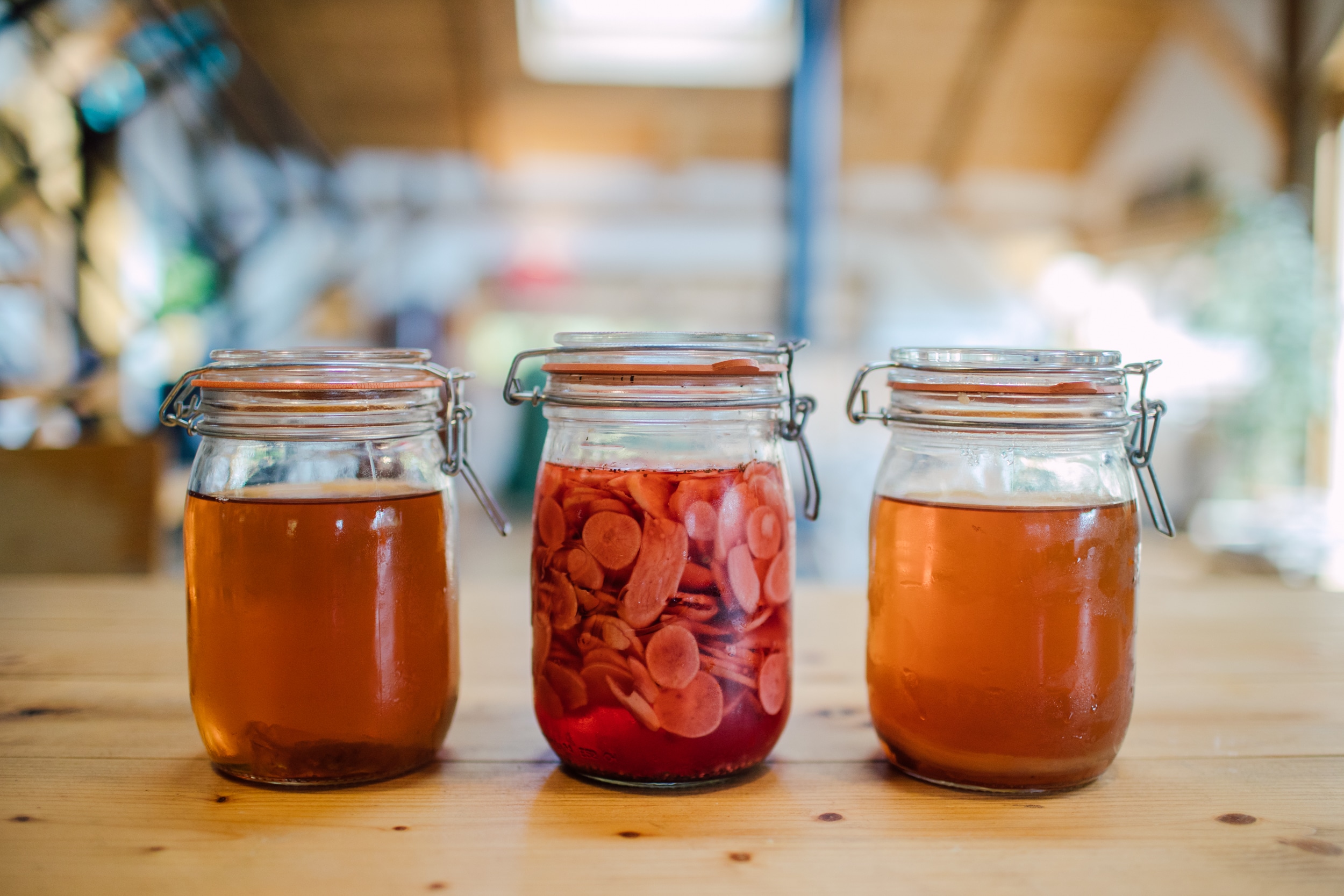
Adopting a permaculture ethos
In our permaculture garden we keep chickens, have an annual vegetable garden and grow fruit and nut trees. By growing our own food as much as possible, we reduce packaging from shop bought goods. We also feed suitable food waste from our chalets to our chickens, and have created an efficient composting system. We combine traditional and Bokashi composting methods to increase our composting ability and can now compost almost all of our food waste, including meat, diary and fish (you can read more about how we do this here).
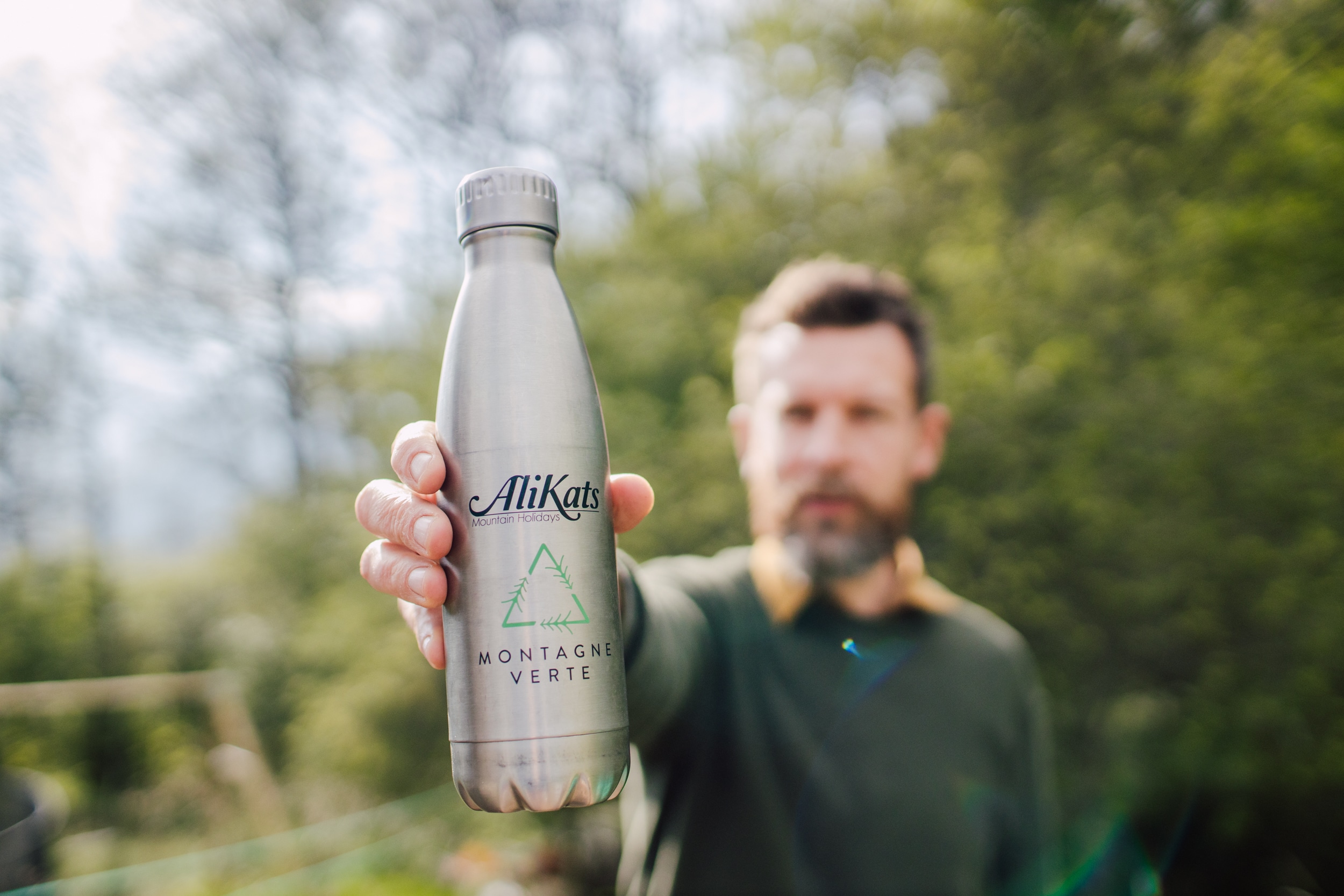
Repairing and reusing items
We have taken the time to build a network of local partners, suppliers and artisans, as well as employing handymen within our team, to help us repair and extend the life of the items we use. This includes:
- Repairing white appliances instead of buying new.
- The repair and upcycle of furniture.
- Buying high quality items, which will last a long time, and even if it is more expensive, repairing rather than replacing.
- Encouraging staff to repair ski wear instead of buying new.
- Partnering with Crevasse Clothing for ski clothing rentals.
- Partnering with Ski Mobile, which offer ski service and kit repair.
- Old towels reused as cleaning cloths, and towels and sheets that are worn go to charity and low income families.
- Kitchenware and soft furnishings gets reused and freecycled if no longer required.
Limiting Plastics
Wherever possible we limit or avoid plastics by replacing them with more sustainable materials. We do the following:
- Glass jars are used for food storage and food deliveries.
- Plastic cleaning bottles are reused and filled with our cleaning products.
- Plastic toothbrushes have been replaced with bamboo ones for guests that forgot to bring their own.
- Washing up brushes are made of natural materials.
- Plastic water pouches have been replaced by tin containers which guests can borrow for the duration of their stay. These are easily sterilized and hygienic to re-use.
- Plastic consumption from shop-bought yogurt pots has been eliminated by making our own batches of natural yogurt and fruit compote for flavouring.
- Salami and ham is purchased directly from the suppliers without plastic packaging.
- Hosts supplied with reusable (non-plastic) bags for fruit and vegetable shopping at the supermarket.
- Large plastic food pots are repurposed for product storage and waste management
- Bathroom toiletries are purchased in bulk and existing containers refilled.
- Food is delivered in reusable crates.
Adopting a zero waste approach is certainly not an easy feat and takes time, planning and perseverance. We started this years ago and still produce some waste. However, by making better choices and introducing small company-wide changes over time we are making progress and helping to reduce our negative impact on the planet.
Working towards carbon neutrality: How our guests’ carbon contribution is making a difference
If you’ve booked an AliKats holiday over the last year, you may remember a carbon neutrality transport contribution being added to the cost of your holiday. Here we explain why we introduced that contribution, what it amounted to and what it means for the planet. Minimising our carbon footprint is…
Continue reading...How to make wood chip mulch at home
In our permaculture garden, we are adopting natural, eco-friendly techniques to help our plants thrive. Vegetables and shrubs need well-hydrated, nutrient-rich soil, but bare soil can get damaged by a number of factors, such as persistent weeds, direct sunlight and drying winds. Organic mulch made from wood chips is a…
Continue reading...The Chicken Cycle: The benefits of gardening with chooks
Last year we introduced chickens to our garden and they’ve quickly become a fundamental part of our permaculture gardening system. They’re also comical creatures to have around, and the three youngest AliKats (Ivy, Wilf and Albie aged 8, 6 and 4) have loved being involved in taking care of them.
Continue reading...Making Organic Plant Feed Out of Nettles
What is it? Weeds are often considered a nuisance, but when prepared properly, stinging nettles have many benefits from a food source to a medicinal treatment to a garden fertilizer. Today we are sharing how to put the nutrients in nettles to good use by creating an organic liquid plant…
Continue reading...
